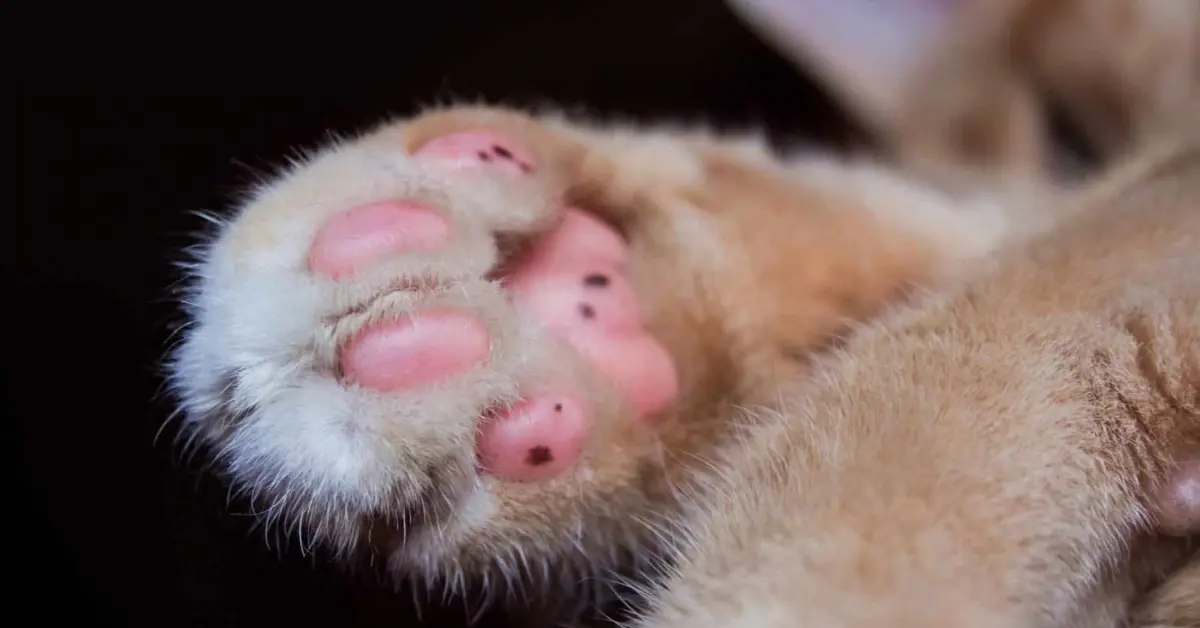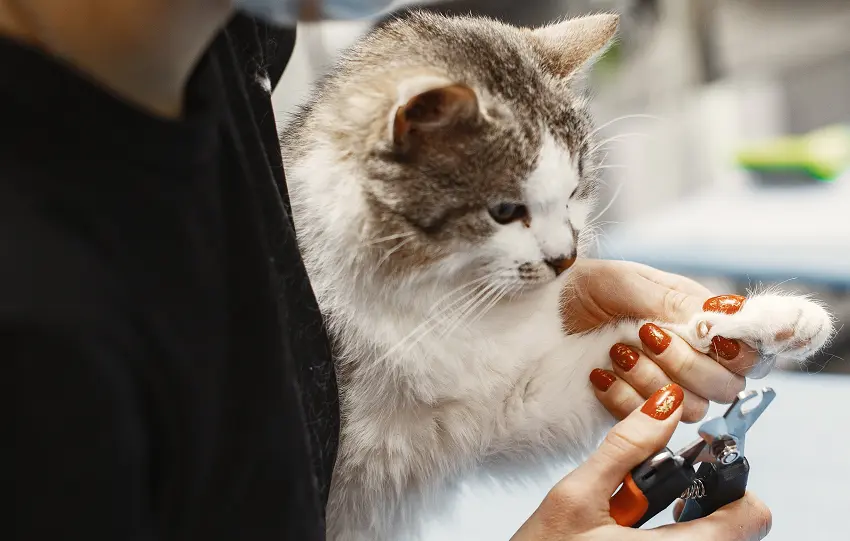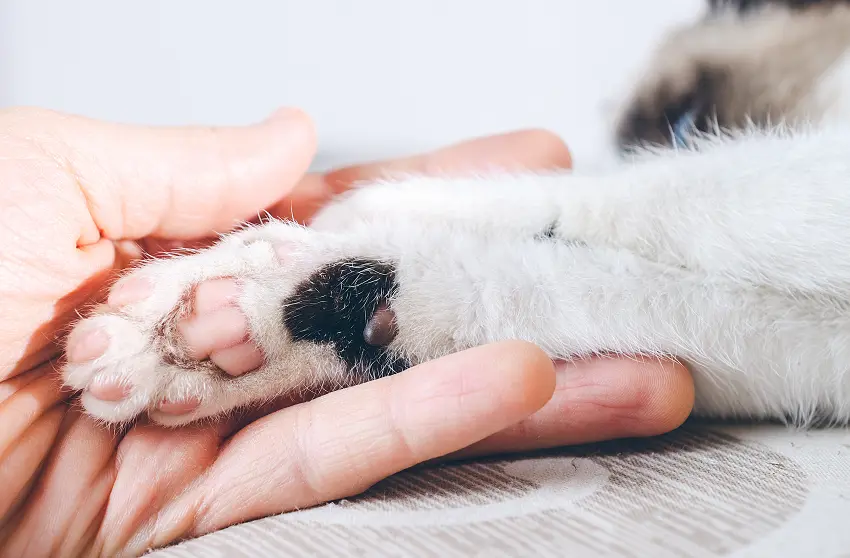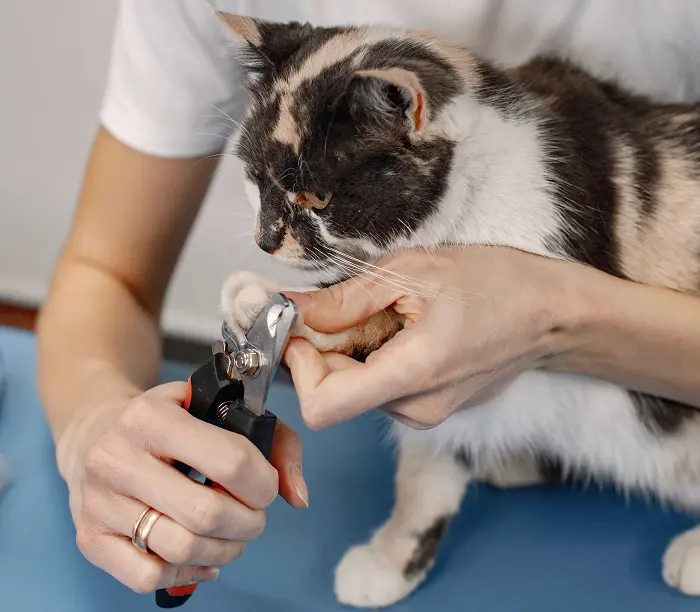When Can A Kitten Be Declawed? Read This First
When can a kitten be declawed? The answer is NEVER. Many animal rights groups discourage declawing kittens because it will lead to lasting physical problems.
Just imagine having all your fingernails removed. It’s a painful, traumatic, and problematic experience that could lead to conditions like nail bed tumors, improper gait, and more.

If you’re considering declawing your kitten, I suggest reading the following points first:
How does cat declawing work?

When a kitten is being declawed, its claws will be cut on its first joint, making it a form of amputation. Some use a guillotine-style clipper or scalpel to do this.
Meanwhile, more advanced methods will utilize laser technology. A beam of light will cut through the kitten’s last toe bone.
Another method used is called tendonectomy. With this procedure, the tendon that controls the cat’s claws will be severed so it can no longer extend to scratch.
This may look less evil, but studies found that kittens that have undergone tendonectomy have to be declawed later on.
Also, kittens that have undergone the tendon procedure tend to be lame and highly susceptible to infections and bleeding.
So, When Can a Kitten Be Declawed?
Although declawing is highly discouraged and is even banned in certain countries if you must declaw your kitten, the suggested age is 10-12 weeks.
Declawing at this age has the lowest risk of complication, speedy recovery, and is less painful for your cat.
Once the procedure is over, your cat will receive pain medication and a padded bandage for a speedy recovery.
What will happen if you declaw a kitten?

Declawing a kitten is an easy fix to avoid scratching, but your cat will pay the price.
In the long run, it will be the cause of various health problems. It’s cruel, and your cat will not be happy about it.
The fact that your kitten is born with claws means that it serves a purpose. If you declaw your cat, the following will be the repercussions:
-
Declawing is amputation
Declawing is the process of amputating all the kitten’s claws on the first joint. It’s like amputating each toe’s bone, which is very painful and uncomfortable for the kitten.
If we’re going to apply the same process to humans, it’s like cutting your fingers up to the knuckles.
Declawing is an unnecessary surgical operation. Many veterinarians discourage pet owners from doing this because the side effects outweigh the benefits.
Over time, you may regret declawing your kitten once you witness its destructive effects.
-
Complications will arise
Declawing is notorious for its side effects during and after the surgery. During the operation, your kitten has a high risk of bleeding.
Aside from that, it may suffer from the side effects of anesthesia, which can put the kitten’s life at risk.
After the surgery, a declawed kitten will have an increased risk of developing nail bed tumors.
This will cost you more in vet care over the years, not to mention that your kitten’s life will never be the same.
-
Your kitten will live a life full of pain
Declawing is painful, and it will remain unbearable as your kitten grows older. Since your kitten can no longer use its claws like usual, it would be uncomfortable.
You may also notice changes in your kitten’s behavior and personality.
Don’t be surprised if your kitten will become aggressive or aloof after declawing. The trauma and pain it suffered from declawing is something the kitten won’t easily forget.
Remember that kittens will not forget those who did something terrible to them.
-
Your kitten will feel insecure
Kittens that have been declawed will feel insecure because they no longer have the claws they can use for defense. It will be frustrating for your kitten.
Worse, it may push your kitten to bite faster, and it will have a low tolerance to roughhousing.
It’s every kitten’s nature to scratch. If they can’t do this, they will find a way to vent out their energy or defend themselves.
This will defeat all your training efforts.
-
The kitten will find it hard to walk
Kittens walk using their toes instead of their soles. If you declaw them, kittens will find it hard to balance.
You will notice your kitten falling more often, and it will soon develop a poor gait to compensate for the removed claws.
With this, your kitten will have a high risk of falling and sustaining severe injuries.
-
Your kitten can’t use the litter box properly
Lastly, your kitten will find it hard to use the litter box properly. As you know, kittens bury their fecal matter, which will be difficult if they don’t have their claws.
It will only make your kitten more frustrated. This can fuel further aggression and changes in the kitten’s behavior.
This aggression could be a reason why your cat swats at you when you walk by.
Alternatives to declawing a kitten
While scratches are painful and can be annoying, you should understand that it’s every kitten’s nature.
Instead of declawing, you can explore alternatives to divert your kitty’s scratching:

-
Trimming the claws
One of the common complaints of kitten owners is painful scratches.
It’s part of raising a kitten. To reduce the scratches, you should trim your kitten’s claws regularly. This will help remove the sharp tips that will dig through your skin.
Take note that you’re not supposed to use a nail cutter made for human fingernails. You should get a clipper made for cats so your kitten won’t be hurt.
-
Get a scratch post
Another effective alternative to declawing is getting a scratching post.
Scratching posts are often wrapped in sisal rope that encourages your kitten to file its claws. This is an excellent diversion, so your kitten won’t target your skin or furniture.
-
Use a special tape
If your kitten is scratching your furniture, declawing isn’t the answer. Instead, use special tape so your wooden furniture will be uncomfortable to scratch.
For our kitten Watson, we use foil sheets on the foot of our kitchen table.
It’s practical, but make sure that there’s a scratching post in place so your kitten will consider it as an alternative.
-
Utilize plastic caps
Another effective alternative to declawing is using plastic caps. These are caps fitted to the claws of the kitten.
So the next time it scratches, it won’t be digging through the skin. You can buy this in most pet stores, but make sure that the material is kitten-friendly.
The best part is you can choose the color that you like.
Which countries have banned declawing kittens?
Many countries have made a move to ban declawing because of its side effects. The following are some of the countries that already banned declawing:
- New Zealand
- Brazil
- Australia
- Belgium
- Spain
- Finland
- Slovenia
- Ireland
- Denmark
- Netherlands
- Norway
- Switzerland
- Sweden
- France
- Austria
- Germany
- England
- Wales
- Scotland
Unfortunately, the United States and Canada are yet to ban this practice. So far, New York is the only state that penalizes declawing kittens.
As for Canada, only the provinces of Nova Scotia and Newfoundland have banned this practice.
Despite that, I discourage cat owners from declawing their kittens. The outcomes I’ve discussed above are more than enough reason to steer clear of declawing.
You can utilize alternatives instead, so your kitten will remain healthy and far from the side effects of this brutal procedure.
Are there benefits to declawing a kitten?
Declawing a kitten will provide superficial and short-lived benefits. Sure thing, your kitten can no longer scratch you, but you will notice changes in its behavior and personality.
There are far worse implications to declawing a kitten than the benefits it brings.
This is the reason why many countries are backing the ban on this practice. While the U.S. and Canada still have a long way to go, it helps a lot if we can spread awareness about this dangerous practice.
Don’t be fooled by the false benefits that declawing brings. It will only make your kitten a big disservice, not to mention life-long and irreversible consequences over the years.
Conclusion
When can a kitten be declawed? You should never declaw a cat, no matter what the reason is. This practice has been proven to result in health and behavioral complications among felines.
Since claws are natural to cats, it plays a significant role in their instincts and habits. Removing it isn’t just painful; it’s brutal and unacceptable.
We hope you will drop the idea of getting your cat’s dewclaw amputated, if you planned to, after reading this article.
Thank you for reading!
